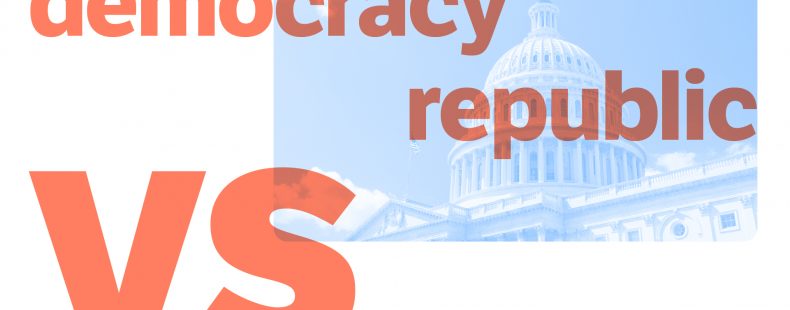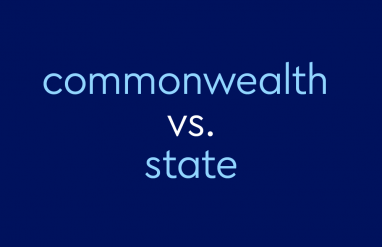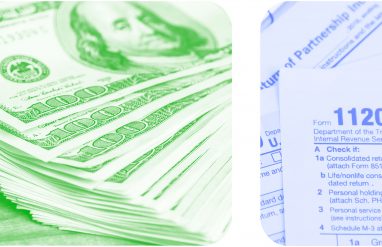You probably hear countries like the United States or France referred to as democracies. At the same time, you probably also hear both of these countries called republics. Is that possible? Are democracies and republics the same thing or different?
We don’t blame you for confusing these two terms. With a major and heated US election underway, it’s the perfect time for some Government 101. Let’s brush up on these two words to see what they have in common—and what sets them apart.
What does democracy mean?
A democracy is defined as “government by the people; a form of government in which the supreme power is vested in the people and exercised directly by them or by their elected agents under a free electoral system.” A nation with this form of government is also referred to as a democracy.
A democracy is achieved by conducting free elections in which eligible people 1) vote on issues directly, known as a direct democracy, or 2) elect representatives to handle the issues for them, called a representative democracy.
The word democracy dates back in English to around 1525–1535. It comes from the Greek dēmokratía, meaning “popular government.” Ancient Greece was home to what most consider to be the oldest form of democracy, the city-state of Athens. In Athens, the people (Greek, dêmos) held the power (Greek, krátos) and made the decisions for their society—forming a dēmokratía.
But it’s essential to note the people who are able to vote in Athens only included certain non-enslaved Athenian men, making this direct democracy very different from the way we understand democracy today.
What is a direct democracy?
For example, if a town only had enough funding to repair either their sewer system or roads, it might ask the citizens to vote on which one should get the money. Its members would vote on their preference, and the town’s government would follow the will of the people and go with their choice. This is a basic example of direct democracy.
Many referendums are voted on this way, such as the Scottish independence (from the United Kingdom) referendum in 2014 and the United Kingdom European Union membership referendum (popularly referred to as Brexit) in 2016.
What is a representative democracy?
In contrast to a direct democracy, the people in a representative democracy elect representatives who act then on behalf of them, known as their constituents. Many of the world’s parliaments and the US’s Congress are an example of representative democracies.
Today, it is inefficient, if not impossible, to have every eligible citizen vote on every issue—to vote on every piece of legislation that it takes to run a city, a state, a country. Instead, citizens vote for leaders to do the work of governing for them.
Let’s revisit our municipal sewer/road matter. A representative democracy would not have each and every citizen of a town directly vote on whether to fund a sewer system or road repairs. Instead, the citizens would elect a mayor and city council to handle these issues in their place. The elected officials would then vote on where city funding should go, doing their best to reflect and respect the needs of the people who voted for them.
What does republic mean?
A republic is defined as “a state in which the supreme power rests in the body of citizens entitled to vote and is exercised by representatives chosen directly or indirectly by them.” Sound familiar? It should.
You see, many of today’s democracies are also republics, and are even referred to as democratic republics. So, the US and France are considered both democracies and republics—both terms point to the fact that the power of governance rests in the people, and the exercise of that power is done through some sort of electoral representation.
The key concept to the word republic is that the leader of this government (or state) is not a hereditary monarch but a president, whether they are elected or installed.
This core idea helps explain in part why autocratic governments like North Korea is officially called the Democratic People’s Republic of Korea. Its citizens vote (or “vote”) on a single candidate. A historical example of a republic is also instructive. The Republic of Venice, a mercantile city-state of the Middle Ages, was led by a doge who was elected by wealthy merchants and served until his death. Neither of these governments would be considered a democracy.
The word republic is first recorded in English 1595–1605. It comes from the Latin rēs pūblica, meaning “public thing,” characterizing that a state is ultimately run by its people—as opposed to monarchy or tyranny. For nearly 500 years, ancient Rome was a republic before it became ruled by emperors.
WATCH: What Is The Origin Of The Republican Party?
So, is the United States a democracy or republic?
For all practical purposes, it’s both. In everyday speech and writing, you can safely refer to the US as a democracy or a republic. If you want or need to be more precise in referring to the system of the US, you can accurately call it a representative democracy. And should you need to be exacting? The US can be called a federal presidential constitutional republic or a constitutional federal representative democracy.
What you should take away in the confusion (or debate) over democracy vs. republic is that, in both forms of government, power ultimately lies with the people who are able to vote. If you are eligible to vote—vote. It’s what, well, makes true democracies and republics.
Exercise that right to vote, whether by mail or in person. Want more information on what mail-in voting means? Read our article on absentee vs. mail-in ballots!














